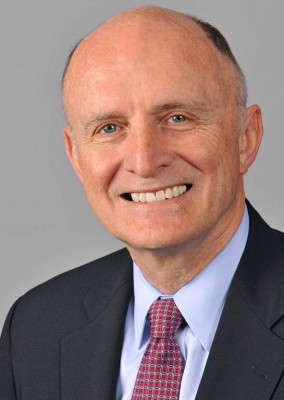Every week, Broadside features a student or alumnus with a great internship or job to highlight the opportunities and potential earning a degree at Mason offers.
NAME:
Robert Perito
GRADUATION DATE:
May 20, 2002
DEGREE:
M.A. in Peace Operations Policy
CURRENT JOB:
Director of Center of Innovation for Security Sector Governance, U.S. Institute of Peace
What are some of your day-to-day responsibilities?
The USIP Security Sector Governance Center helps build professional, sustainable and democratic security institutions that promote respect for human rights and the rule of law. This capacity is essential in countries impacted by the Arab Spring and countries emerging from conflicts like Iraq and Afghanistan. The Center conducts programs in security sector transformation in fragile states and helps develop a cadre of security sector reform experts through conferences, research and training. The U.S. Institute of Peace is funded by Congress and dedicated to the peaceful resolution of international conflict.
How did your degree and/or courses at Mason help you land the job?
I came to the U.S. Institute of Peace as a Senior Fellow to write a book on the role of police in peace operations. The research skills and background knowledge that I obtained at Mason made it possible for me to complete the book, entitled “Where is the Lone Ranger When We Need Him?” which was published in 2004.
What’s the most exciting part of your job?
My work involves international travel and the opportunity to work on cutting edge issues. Last year I visited Libya twice to research a report on Libya’s security challenges. Recently, I worked with police in Pakistan on methods for combating terrorism. I also write for publication, speak at conferences and give media interviews.
What’s the most challenging part of your job?
In an era of resource constraints, there is stiff competition for project funding. Preparing budgets and project proposals is not glamorous, but it is a necessary part of my job. These are skills that all Mason graduates will require.
What advice would you offer anyone trying to go into a similar field?
Do not specialize too early. Acquiring a broad base of knowledge is important. It is also important to be flexible in applying your knowledge and skills to new situations. No one expected Mali to become a place where skills in nation building, economic development, counter terrorism, security sector transformation and constitutional development would be needed on an urgent basis. Today, Mali is near the top of the foreign policy agenda.







Comments